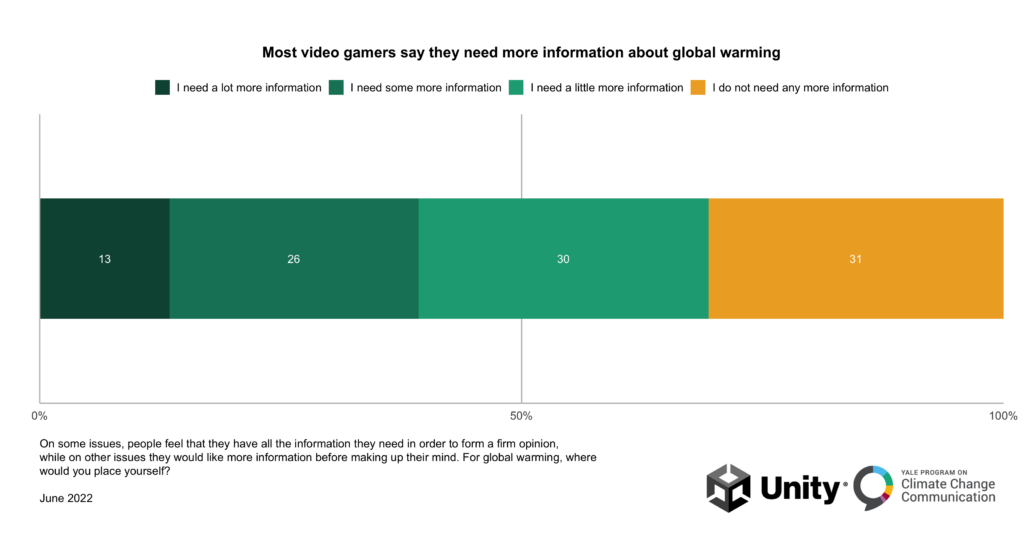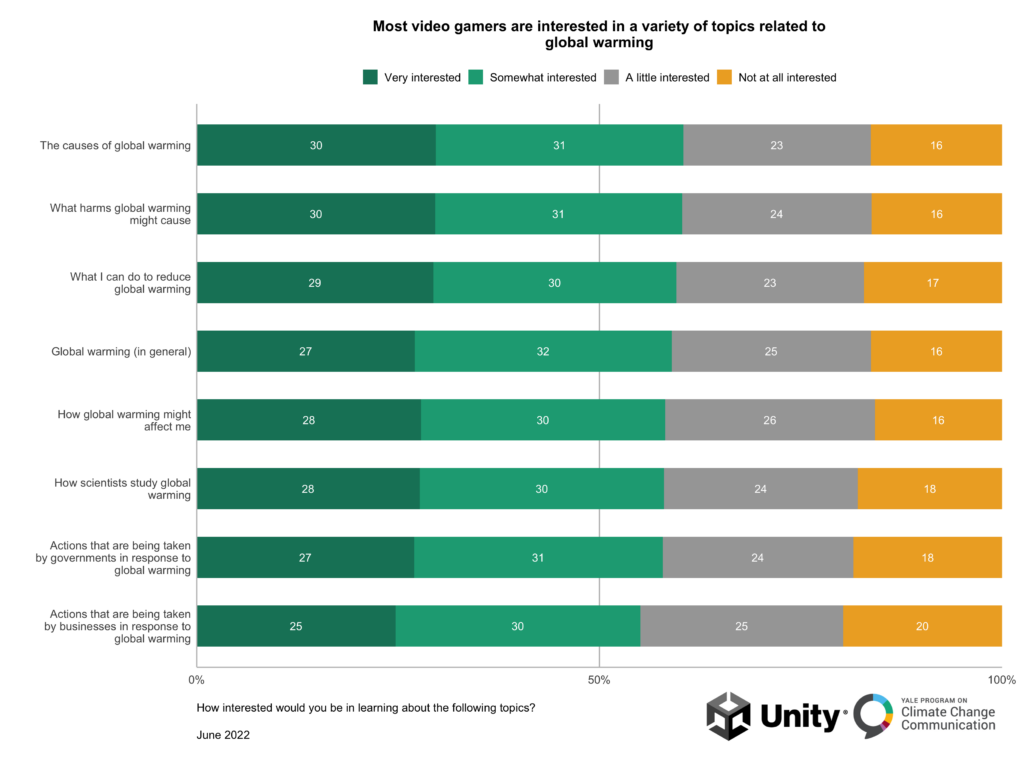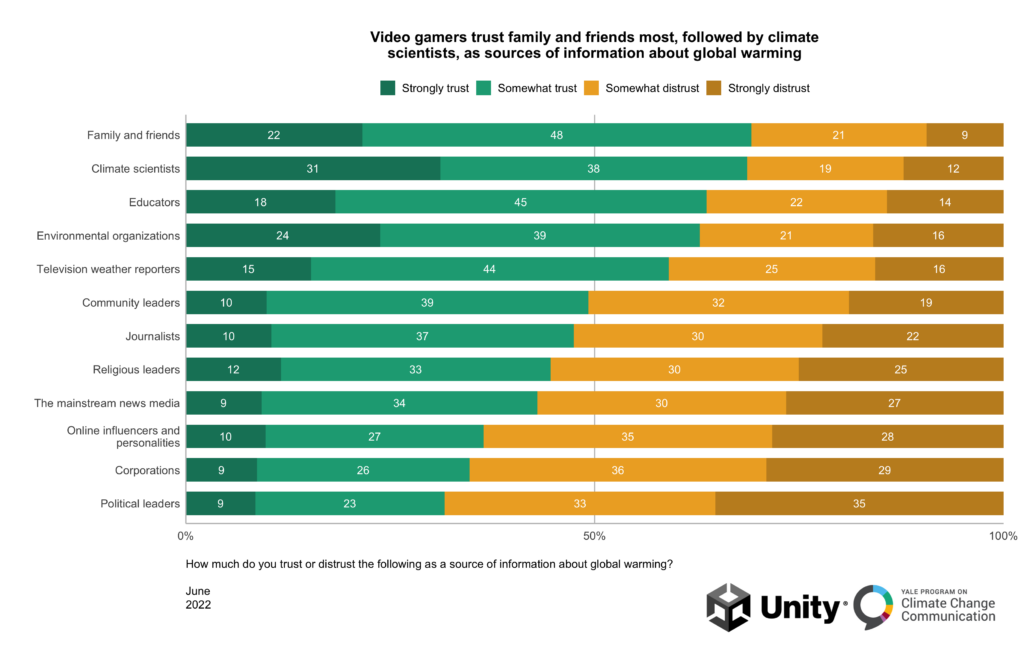Report · Aug 30, 2022
What Do Video Gamers Think About Global Warming?
By Anthony Leiserowitz, Jennifer Carman, Marina Psaros, Liz Neyens, Seth Rosenthal, Jennifer Marlon and Malika Srivastava
Filed under: Beliefs & Attitudes and Audiences
5. Information Needs and Trusted Sources
5.1. Most video gamers say they need more information about global warming.
About seven in ten video gamers (69%) say they need more information to make up their mind about global warming, including about one in ten (13%) who say they need “a lot” more information. About three in ten video gamers (31%) say they do not need any more information.
5.2. Most video gamers are interested in a variety of topics related to global warming.
When asked about the types of topics related to global warming they would be interested in learning about, most video gamers they would be either “very” or “somewhat” interested in learning about the causes of global warming (60%), what harms global warming might cause (60%), what they can do to reduce global warming (60%), global warming in general (59%), how global warming might affect them (58%), how scientists study global warming (58%), actions that are being taken by governments in response to global warming (58%), and actions that are being taken by businesses in response to global warming (55%).
5.3. Video gamers trust family and friends most, followed by climate scientists, as sources of information about global warming.
When asked how much they trust various sources of information about climate change, about seven in ten video gamers say they either “strongly” or “somewhat” trust family and friends (69%) and climate scientists (69%), including 31% who say they “strongly trust” climate scientists and 22% who say they “strongly trust” family and friends. More than half of video gamers also say they “strongly” or “somewhat” trust educators (64%), environmental organizations (63%), and television weather reporters (59%) as sources of information about global warming. About half or fewer video gamers say they trust community leaders (49%), journalists (47%), religious leaders (45%), the mainstream news media (43%), online influencers and personalities (36%), corporations (35%), or political leaders (32%) as sources of information.


